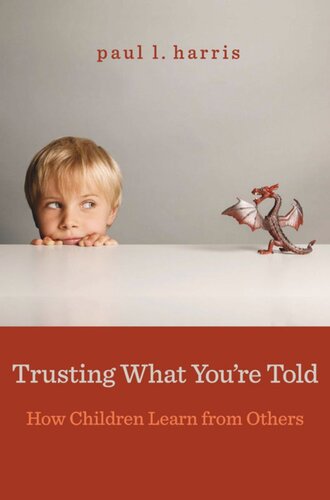

Most ebook files are in PDF format, so you can easily read them using various software such as Foxit Reader or directly on the Google Chrome browser.
Some ebook files are released by publishers in other formats such as .awz, .mobi, .epub, .fb2, etc. You may need to install specific software to read these formats on mobile/PC, such as Calibre.
Please read the tutorial at this link: https://ebookbell.com/faq
We offer FREE conversion to the popular formats you request; however, this may take some time. Therefore, right after payment, please email us, and we will try to provide the service as quickly as possible.
For some exceptional file formats or broken links (if any), please refrain from opening any disputes. Instead, email us first, and we will try to assist within a maximum of 6 hours.
EbookBell Team

5.0
100 reviewsIf children were little scientists who learn best through firsthand observations and mini-experiments, as conventional wisdom holds, how would a child discover that the earth is round—never mind conceive of heaven as a place someone might go after death? Overturning both cognitive and commonplace theories about how children learn, Trusting What You’re Told begins by reminding us of a basic truth: Most of what we know we learned from others.
Children recognize early on that other people are an excellent source of information. And so they ask questions. But youngsters are also remarkably discriminating as they weigh the responses they elicit. And how much they trust what they are told has a lot to do with their assessment of its source. Trusting What You’re Told opens a window into the moral reasoning of elementary school vegetarians, the preschooler’s ability to distinguish historical narrative from fiction, and the six-year-old’s nuanced stance toward magic: skeptical, while still open to miracles. Paul Harris shares striking cross-cultural findings, too, such as that children in religious communities in rural Central America resemble Bostonian children in being more confident about the existence of germs and oxygen than they are about souls and God.
We are biologically designed to learn from one another, Harris demonstrates, and this greediness for explanation marks a key difference between human beings and our primate cousins. Even Kanzi, a genius among bonobos, never uses his keyboard to ask for information: he only asks for treats.